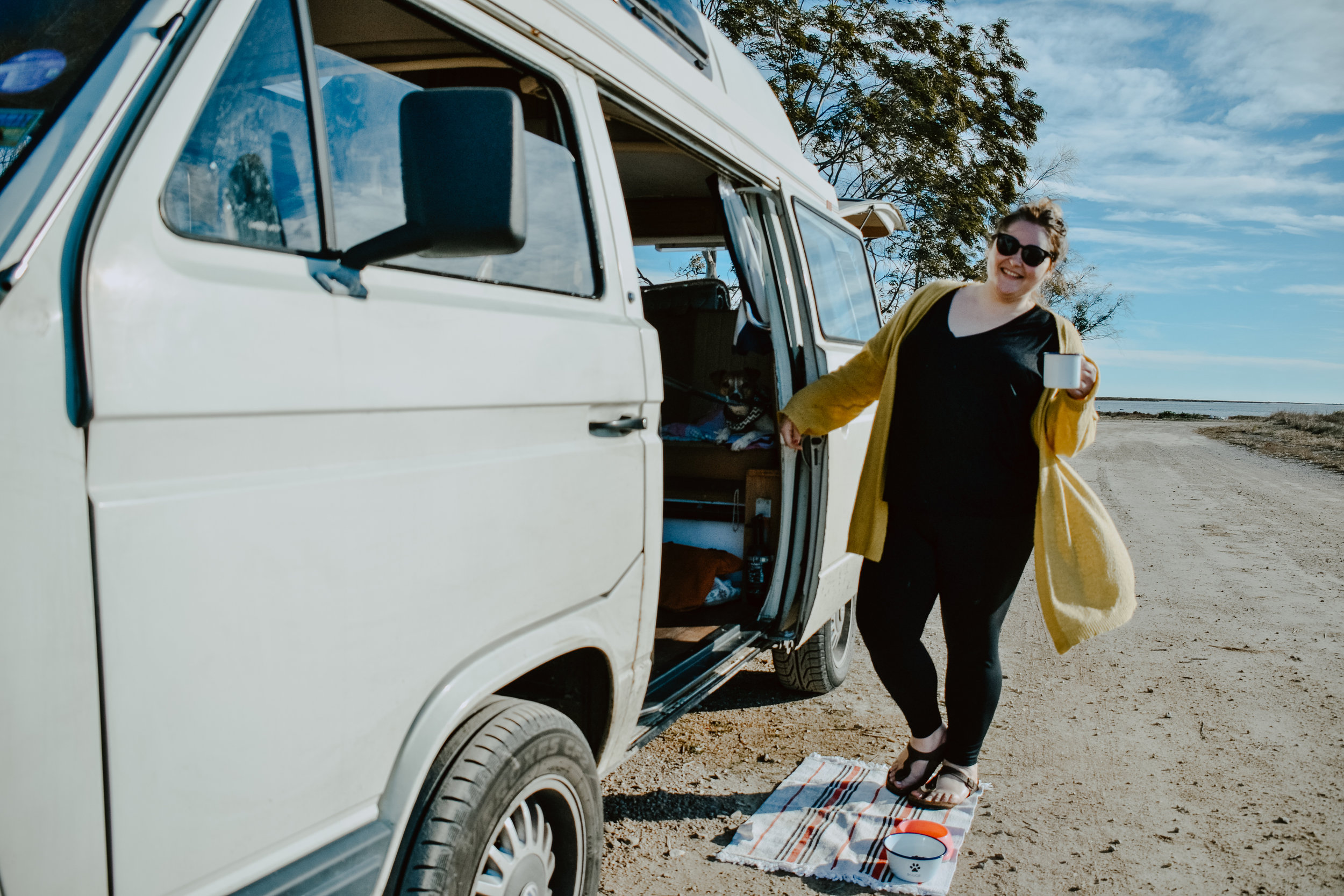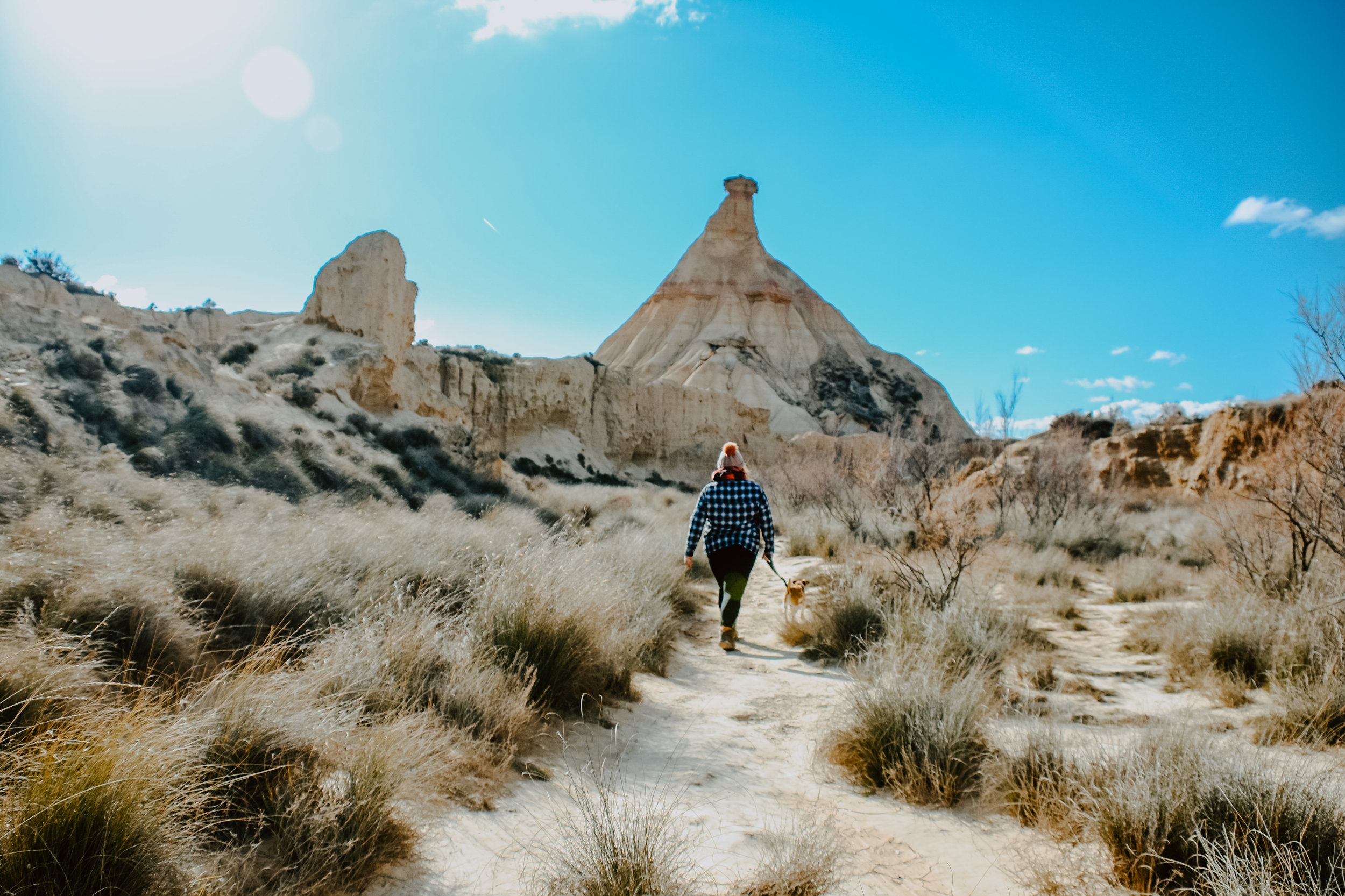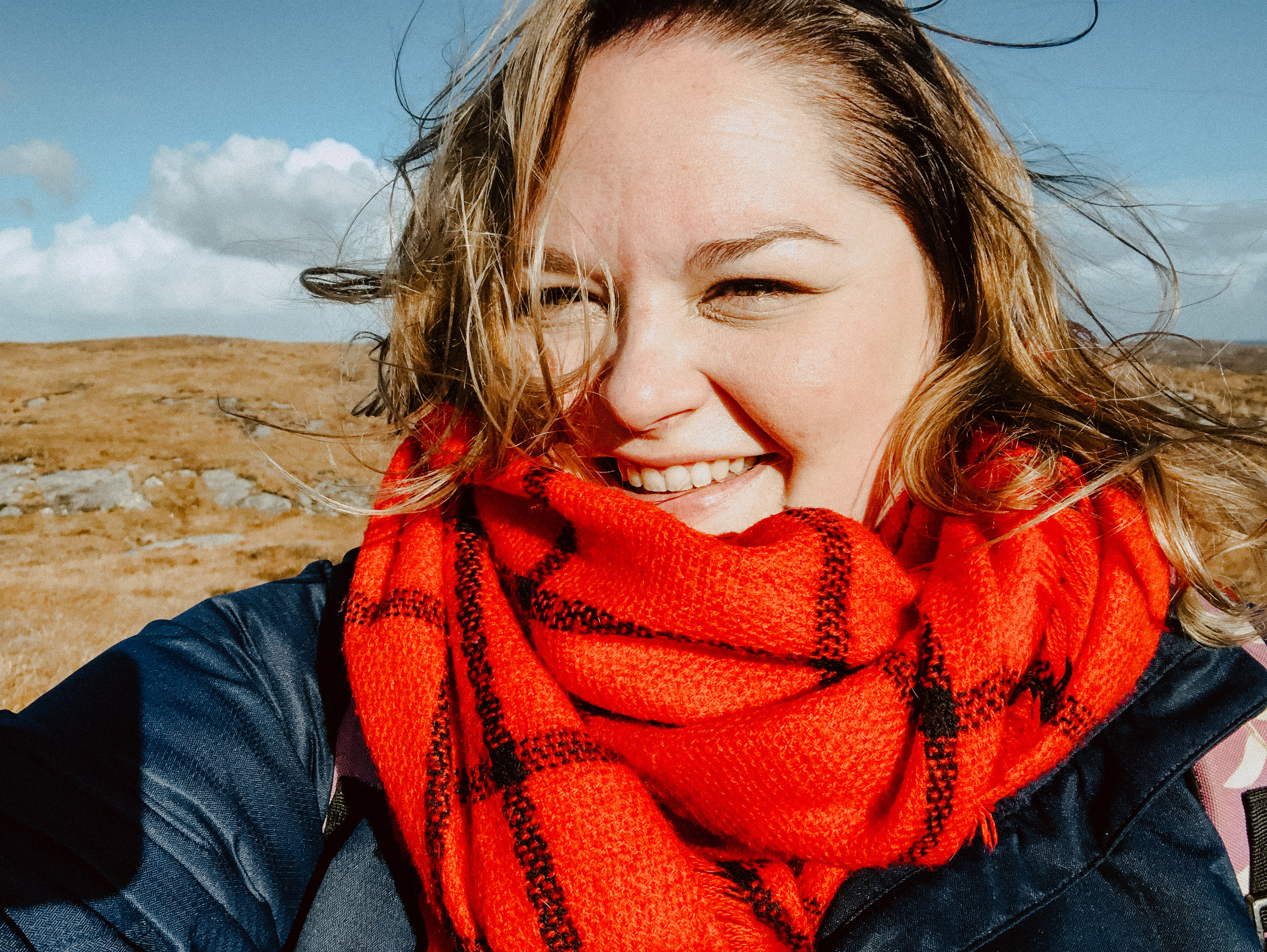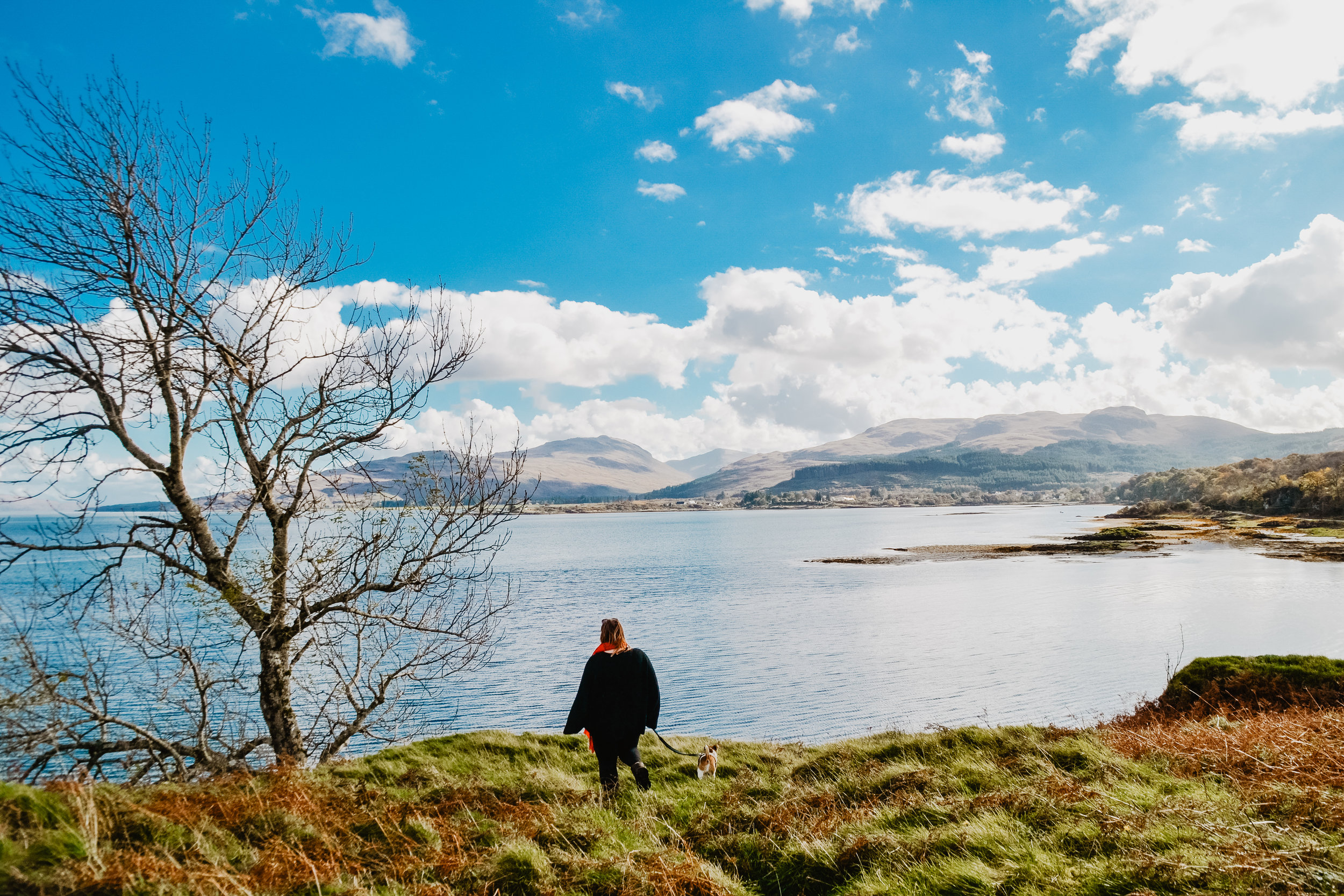How To Be Alone
“I don’t know how you do it, I would be crying into my pillow every night.”
“You are so brave.”
“Aren’t you brave?”
“I couldn’t do it.”
I am women travelling alone. Well, I have Dougie the dog with me, so not entirely alone but as a singular human being I am by definition, alone.
I have travelled alone with Sabre Charitable Trust to Ghana to teach. I’ve travelled from New York to LA alone, with Trek America. I travelled Canada alone. I have also travelled with my eldest brother to Tanzania, Uganda, Rwanda and oddly, Russia. I have travelled with another brother (I’ve got 4 brothers!) to Poland, Hungary, and Germany because we really like beer and art. I have travelled with my best friend to Australia, Thailand, Malaysia and Borneo.
That wasn’t meant to be “look at me gap-yaahhhh’ boast, but rather to illustrate I have experienced both worlds of travelling alone and travelling with someone you love.
Neither one is better or worse. I adored being able to share experiences with someone, then recount all our funny memories over drinks years later. Travelling with another person bonds you in a very unique way.
While on the other hand, travelling alone is incredibly empowering. The experiences I had in my early twenties made me fiercely independent, street-wise, confident and secure in the knowledge that I could handle anything. Above all, it made me like my own company. I am fine with being alone. I actually quite like it. I even actively seek out solitude at times.
But this can illicit strong feelings in other people from disbelief to envy, to downright disdain. I’m not entirely sure why. A woman travelling alone is increasingly common. A Booking.com survey revealed 72% of American women travel alone. The Adventure Travel Trade Association member report showed over 80% of their millennial travellers are going solo, and google searches for "solo female travel” grew by 52% between 2016 and 2017.
Perhaps because I, and increasingly many other women, don’t fit into the typical narrative where we have had big relationship break ups or lost our jobs or need to ‘Eat, Pray, Love’ - is what confounds people.
When people notice that I’m a confident woman whose heart isn’t broken, I find the tone of the messages change;
“You must be vulnerable in the van.”
“Aren’t you scared?”
“Don’t you ever get lonely?”
Ah, there it is; Fear. The fear of the unknown. The fear of what could go wrong. The fear of loneliness. Fear. Fear. Fear.
Of course I feel all those things. I am human. I can feel vulnerable, I feel scared sometimes, and yes, I do occasionally feel lonely. The difference is, I’m not afraid of those feelings and those feelings don’t rule me.
So when people ask, “how do you travel alone?” really what they are asking is “how do you cope with feelings of loneliness?” These are two very different questions.
Loneliness
A study by the British Red Cross revealed over 9 million people, more than the population of London, in the UK are either always or often lonely. A study by the Jo Cox Commission on Loneliness found that 35% of men feel lonely at least once a week, and 1 in 3 adults over 45 years old in America are lonely according to the AARP Foundation. 1 in 5 adults in Australia reported they rarely or never feel they have someone to talk to or turn to for help, and more than one quarter feel lonely for at least three days every week.
The trouble is that loneliness doesn’t just make you feel terrible – it is also terrible for you.
Loneliness elevates our risk of developing a range of disorders, including cardiovascular disease, neurodegenerative diseases, cognitive decline, and metastatic cancer. It also weakens the immune system. Left untended, even situational loneliness can turn into a fixed state that changes brain structures and processes.
In short, loneliness is as bad for you as smoking 15 cigarettes a day, and increases the likelihood of an early death by 26%.
It has become such a problem in the UK that Theresa May launched a national loneliness strategy in October, with a £11.5m fund to tackle the epidemic of loneliness. We now have a Minister of Loneliness, Tracey Crouch. Although, she may have resigned by now. I can’t keep up with all the Brexit exits…
Why are we so lonely when we have never been better connected?
Technology has transformed the way we live. Yet, the writer Laura Entis, claims, it is the technology that has sanded away the necessity and inconvenience of interacting with other human beings as we can work from home, order groceries online, and stream movies from bed.
While Labour MP, Rachel Reeves, argues the weakening of trade union, church, local pub and workplace ties have left a disconnected society.
But loneliness is not always and not only a question of social isolation, and the way out is not necessarily through other people.
You don’t have to be alone to be lonely.
It is important to know and understand that being alone is not necessarily loneliness. You can feel lonely in a relationship, or while surrounded by friends and family.
As a first step, it is helpful to recognise why you are lonely. Gretchen Rubin, the author of the Happiness Project, theorises there are 7 different types of loneliness;
1.New-situation-loneliness
You have moved to a new city where you don’t know anyone, or have started a new job or school full of unfamiliar faces. You’re lonely.
2. I’m-different loneliness
You feel different from other people in an important way that makes you feel isolated.
3. No-sweetheart loneliness
Even if you have lots of family and friends, you feel lonely because you don’t have the intimate attachment of a romantic partner. Or maybe you do have a partner, but you don’t feel a deep connection to that person.
4. No-animal loneliness
Many people have a deep need to connect with animals and feel like something important is missing if they don’t have a dog or cat (or less conveniently, a horse) in their lives.
5. No-time-for-me loneliness
Sometimes you’re surrounded by people who seem friendly enough, but they don’t want to make the jump from friendly to friends. Maybe they’re too busy with their own lives, or they have lots of friends already, so while you’d like a deeper connection, they don’t seem interested.
This tends to happen when you reach a certain age as your existing social circle can enter a new phase such as, busy careers or starting a family, that means they no longer have time for the things you all used to do.
6. Untrustworthy-friends loneliness
Sometimes you doubt whether your friends are truly well-intentioned, kind, and helpful. You’re “friends” with people but don’t quite trust them.
7. Quiet-presence loneliness
Sometimes, you may feel lonely because you miss having someone else’s quiet presence. You may have an active social circle at work, or have plenty of friends and family, but you miss having someone to hang out with at home — whether that would mean living with a roommate, a family member, or a sweetheart. Just someone who’s fixing a cup of coffee in the next room, or reading on the sofa.
I would, personally, add an eighth type of loneliness;
8. I-don’t-like-myself loneliness
Your diary is so full there is not a second where you are alone and on the rare occasions when you are by yourself, you become an absolute wreck.
This is the hardest one to fix, but it is the most transformative one when you do. Trust me.
2. Identify why you are lonely
It’s important to realise why we feel lonely, because only then can we see how to go about changing it.
If you’re feeling lonely but can’t quite put your finger on why then a good exploratory question to regularly ask yourself is, “what am I missing from my life?”
Is it missing having a best friend, or being part of a group, or a place to go where everyone is familiar, or a romantic partner, or simply having the presence of someone who is just around in the house? It may be an uncomfortable process at first, but it will be worth it in the end as you will then be empowered to take positive action so you can feel less lonely.
3. Find a purpose
This is probably the most important strategy to combat loneliness. Mostly because it comes from within, is independent of other people, and can not be taken away from you. Think of finding a purpose as your super power.
It is also based on science. Steve Cole, a professor of medicine at UCLA, studies how chronic loneliness affects our biology, and his findings suggest that having a sense of meaning in your life, being highly engaged with some kind of self-transcending goal, could help to protect against the harmful effects of feeling isolated.
It can take awhile to find something you are truly passionate about so don’t beat yourself up if it’s not something you know immediately. It’s an opportunity to experiment with new things while you connect with what drives you.
I nurtured my purpose - education, young people and mental health - for years and it keeps me driven on those odd lonely days in the van.
4. Care for others
I was incredibly lonely when I had to move back with my parents to save money. Their elderly neighbour had just placed her husband in a care home so when I spotted her outside one morning I asked her if she fancied a glass of wine and a chat later. It was the best Friday night I had in ages. We both felt so good for having each others company, it became a regular date night.
Studies have shown there are multiple mental health benefits to volunteering, including reducing symptoms of stress, depression and even, blood pressure.
Volunteer with a local charity or do what I did, help someone within your community.
5. Connect with other people (to state the obvious)
Lonely people often have lower levels of self-esteem, as well as higher levels of social comparison and social anxiety. It’s with little surprise that people become trapped in a vicious cycle of feeling lonely, then being unable to connect with others.
Online communities are a wonderful first step to breaking this cycle. I found Instagram a brilliant, collaborative space. Facebook groups such as, Women in Campervans, are a great way for me to meet like minded people.
While travelling I thrive off tiny social interactions from waving to the farmer tending his crops to polite chit-chat at the supermarket checkout. I used to be embarrassed to make the first move, but I forced myself to do it every time. Now I’m absolutely shameless and give anyone a big friendly wave!
When I crave real, easy connections then I actively seek out a van community or go to a campsite, while I’m travelling.
Before travelling I used the app, Meet Up, to join groups and make friends. I discovered a woman only group who just meet up for fancy afternoon teas. I found some soul sisters in that group!
Don’t be afraid to reach out to friends and family with a quick text, phone call or my personal favourite, FaceTime. There is nothing shameful about feeling human, it is a natural part of the human condition and it is amazing how restorative a quick chat who you know, and who knows you, can be.
6. Get creative
Unleash your imagination and delve into the creative side of you. I’m not artistic or particularly talented with my hands, but I love writing. I keep a journal. I write a blog. I’m writing a book. I sometimes just simply write for writings sake. For you it might be sketching, painting, woodwork, cooking, baking, sewing, graphic design. Whatever it is, do it. Do it a lot.
7. Connect with nature
Hiking has been absolutely revolutionary for me. I have never felt more alive, more connected with the world around me, than when I’m walking. I enjoy the solitude. I find it restorative, inspiring and empowering.
I used to find “go for a walk” advice infuriating but there is so much evidence of the benefits of being outside, from improving short-term memory, reducing the stress hormone cortisol, lower blood pressure, improved ability to focus, to alleviating symptoms of depression and anxiety.
If you can, get outside. Read a book outside, have lunch outside, just get outside.
8. Become your own best friend.
Do you struggle with the I-don’t-like-myself loneliness? Yeah. 7 years ago. Me too.
I couldn't bear to spend a minute alone so I drowned in a pit of parties, bars, false friendships, toxic relationships, and all consuming jobs. Then I found myself living alone. I had to spend time with me. I didn’t like me. I inevitably fell into the abyss.
How did I claw my way out of that black hole and change this?
I became my own best friend. I was kind. I was gentle. I was non-judgemental. I was trusting. I was patient. I was open-minded. I would listen. I would take my own advice. I would be brutally honest, yet unquestionably supportive. I became my own cheerleader. I became curious. I wanted to know the ‘why’ behind our thoughts and actions. I became someone I would want to be best friends with.
I’m not going to lie to you; it took a helluva long time to get that to place but once I did, living alone and travelling alone wasn’t scary at all. It was the most natural, wonderful thing I could ever have done for my best friend, me.
How do you cope with feelings of loneliness? Do you find solitude restorative or hellish? I would love to know!



